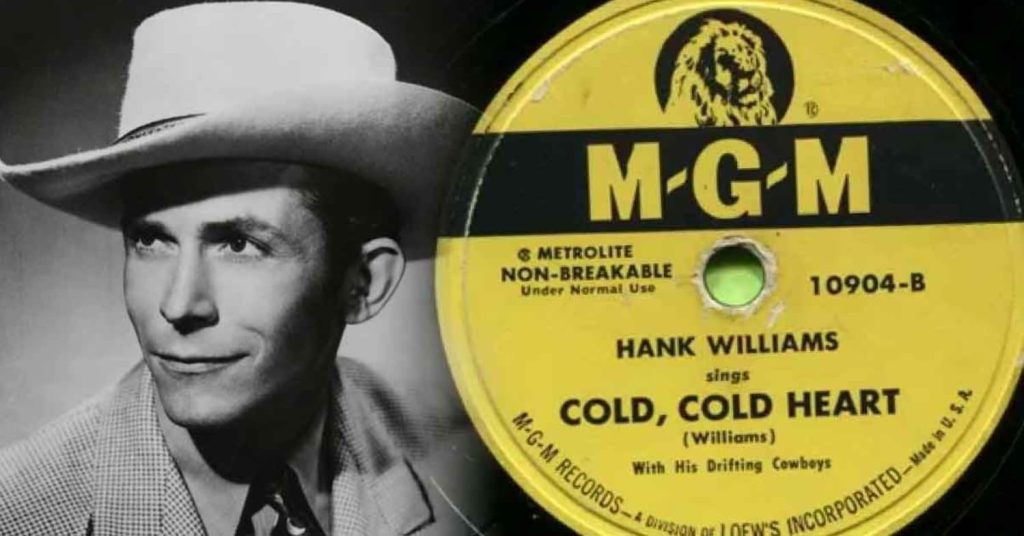
A man’s tender surrender to love’s unrelenting chill
When Hank Williams released Cold, Cold Heart through MGM Records in early 1951, it quietly entered the airwaves as the B-side to Dear John. But destiny had other plans. While “Dear John” reached No. 8, “Cold, Cold Heart” outshone its companion, climbing to No. 1 on Billboard’s Country & Western chart and remaining there for weeks. It became the best-selling country single of 1951, a song that would forever fuse Williams’s name with the aching honesty of love’s defeat.
Recorded on December 21, 1950, at the Castle Studio in Nashville, Williams was backed by his Drifting Cowboys, the band that had followed him through roadhouses, radio stations, and endless miles of Southern highways. His voice on that recording is unguarded—raw and trembling, yet deliberate. The sparse arrangement allows every syllable to breathe. It is the sound of a man offering not just a melody but a confession.
The story behind Cold, Cold Heart is said to stem from a moment of heartbreak in Williams’s turbulent marriage to Audrey Williams. According to accounts from biographers, she had fallen ill and been hospitalized; when Hank visited, she refused to see him. Someone reportedly told him she was “cold as ice,” and from that wound came the line that shaped the song’s emotional nucleus. Whether that exact moment is legend or truth, the song’s authenticity cannot be questioned—it feels lived, not written.
In its verses, the singer faces an invisible wall: love still alive but unreachable. He pleads, not with anger but with sorrow:
“Why can’t I free your doubtful mind and melt your cold, cold heart?”
It is one of the simplest, most devastating questions in popular music—because every listener, at some point, has asked it.
Musically, Cold, Cold Heart sits at the crossroads of honky-tonk and hymn. The steady rhythm evokes a slow dance in an empty barroom, while the steel guitar bends like a sigh. Williams’s phrasing, drawn out and slightly off-tempo, creates the illusion that time itself has slowed down under the weight of memory. The melody wanders between resignation and hope, its sorrow as gentle as it is piercing.
The song’s impact spread far beyond the country world. Later that same year, Tony Bennett transformed it into a lush pop ballad arranged by Percy Faith, reaching No. 1 on the Billboard pop chart and staying there for 27 weeks. For the first time, a country song crossed into mainstream pop without losing its soul. That crossover marked a turning point: it showed that rural heartbreak could speak to anyone—New York sophisticates and small-town dreamers alike. Bennett would later call it one of the songs that changed his career, while Williams cemented his legend as a poet of pain.
Over the years, “Cold, Cold Heart” has been recorded by countless artists—Dinah Washington, Norah Jones, Lucinda Williams, even Elton John, who co-wrote a tribute song of the same title in 2021. Yet none match the haunting intimacy of Williams’s original. His version feels like a night whisper—lonely, hushed, and impossibly human.
To hear it today is to step into a moment of shared solitude. The fiddle sighs, the steel guitar lingers, and Hank’s voice carries the weight of every heart once left unanswered. The recording captures something eternal: the ache of being misunderstood by someone you love, and the quiet dignity of continuing to love them anyway.
More than seven decades later, Cold, Cold Heart remains a testament to emotional honesty in music—a song that taught the world that sometimes the deepest warmth lies in a man’s willingness to sing through the chill.